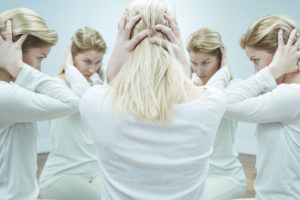
Understanding the Role of the Spine in Vertigo
 Vertigo is a relatively common condition that leaves the affected person feeling as if the world is spinning around them. It is estimated that as many as 69 million Americans have experienced some form of vestibular condition that's associated with vertigo. This can have an impact on day-to-day activities and overall quality of life. A better understanding of vertigo can help sufferers to guide healthcare and lifestyle decisions.
Vertigo is a relatively common condition that leaves the affected person feeling as if the world is spinning around them. It is estimated that as many as 69 million Americans have experienced some form of vestibular condition that's associated with vertigo. This can have an impact on day-to-day activities and overall quality of life. A better understanding of vertigo can help sufferers to guide healthcare and lifestyle decisions.
How Does the Body Maintain Balance?
The vestibular system is the main system of the body that controls your sense of balance. It is made up of several components:
- Parts of your inner ear
- The vestibulocochlear nerve – the 8th cranial nerve, which conducts signals from the inner ear to the brain
- Parts of the brainstem and cerebellum
Your body also takes cues from what your eyes see and from proprioceptive sensors in the limbs. All of these components combined give your body the ability to properly sense where it's located in space and maintain balance.
To learn more about the connection between head and neck injuries and vertigo download our complimentary e-book by clicking the image below.
Vertigo and the Upper Cervical Spine
The vertebra that sits at the top of your neck, the atlas, protects the brainstem as it exits from the skull. The atlas is designed to be extremely movable and contributes to the large range of motion of the head. Because the atlas is so freely movable, it can also be vulnerable to misalignment either from injury or wear and tear. When the atlas misaligns, it can create abnormal brainstem pressure. Because parts of the brainstem play an important role in sensing balance, any irritation of the nerves in this area can create vertigo-inducing conditions.
Upper cervical chiropractic's goal is to assess for even the slightest misalignments of the atlas vertebra that can be causing interference with the way your brain and body are able to communicate. We use precise and gentle adjustment techniques to restore normal atlas alignment. By doing so, normal signals carrying information about balance are also restored. This can be the natural, lasting solution to vertigo that you've been seeking.
References:
http://www.webmd.com/brain/vertigo-symptoms-causes-treatment#1
To schedule a complimentary consultation call our Ann Arbor office at 734-274-5107 You can also click the button below.
if you are outside of the local area you can find an Upper Cervical Doctor near you at www.uppercervicalawareness.com.
.png?width=150&height=60&name=2026%20LSC%20Logo%20(2).png)


